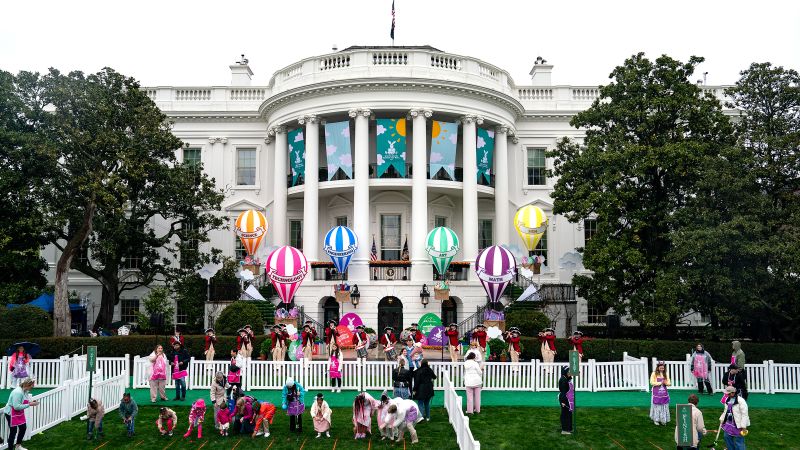The upcoming Easter Egg Roll at the White House has become a focal point of collaboration between the Trump administration and major tech companies, highlighting both the political landscape and market fluctuations. The event, a traditional family-friendly gathering, is set to include high-profile partnerships with platforms like YouTube, Meta, and Amazon, reflecting the interests and business strategies of these Silicon Valley giants. This blending of a time-honored tradition with corporate sponsorships marks a notable shift in the landscape of political events, where funding typically comes from private contributions rather than taxpayer dollars.
As detailed in a recent nine-page solicitation document, an external production company named Harbinger has been tasked with gathering corporate sponsorships for the Easter Egg Roll, offering tiers of partnership ranging from $75,000 to $200,000. Potential sponsors are promised extensive branding and promotional avenues throughout the event, a move aimed at not just covering costs associated with the festivities but also boosting the profile of participating companies. The initiative not only allows sponsors to gain visibility but also ensures the utilization of raised funds to benefit the White House Historical Association, which underscores a commitment to maintaining the historical significance of the event.
According to a press release from the office of First Lady Melania Trump, several technology companies and trade associations have already signed on as sponsors. These include Amazon, which is responsible for setting up a “Reading Nook,” and YouTube, providing a “Bunny Hop Stage.” Interestingly, the partnerships represent not only a financial investment but also a strategic alignment of interests during a time when tech companies have faced monetary volatility due to fluctuating markets and political decisions, especially those pertaining to trade and tariffs instigated by the Trump administration.
The event will feature various engaging activities, all enhanced by corporate sponsorships. The NYSE will be involved with a “Ringing of the Bell” photo opportunity, while Meta is set to offer an “AI-Powered Experience and Photo Opportunity.” Such integrations are designed to create a fun and interactive environment for children and families attending the event. Beyond the technology sector, other sponsors include the American Egg Board, which has consistently supported the Egg Roll by supplying 30,000 hard-boiled eggs, and groups such as The Toy Association and the National Confectioners Association, which aim to captivate attendees with more than just an egg hunt.
Despite these collaborations, the solicitation for corporate sponsorships raises eyebrows as it appears to blur the lines established regarding the distasteful mixing of public office and private gain. Without precedent in such public events, the offer of naming rights and branding opportunities seemed to flout traditional regulations. Critics have voiced their concerns, noting that the mixture of commercial interests with government events could undermine the integrity of the White House and its historical traditions.
Take, for instance, Richard Painter, a former chief White House ethics lawyer under President George W. Bush, who commented that such aggressive monetization of a public event would have been fiercely resisted during his tenure. He emphasized that the event should not be treated like a commercial venue where logos dominate the visual landscape simply because of financial contributions. This critique further fuels the ongoing debate about the appropriateness of corporate involvement in government-led events, raising questions about accountability and the influence of private entities over public sentiment.
In summary, the White House Easter Egg Roll illustrates the evolving relationship between government events and corporate sponsorships, amidst broader discussions on ethics and accountability. As families prepare to celebrate the arrival of spring with the traditional egg hunt, the implications of corporate collaboration loom large over this cherished occasion. The partnerships signify profound changes that characterize the intersection of politics, commerce, and public engagement in contemporary society.



